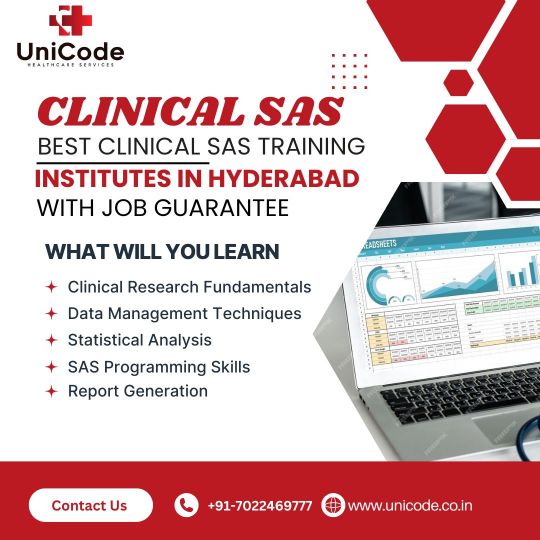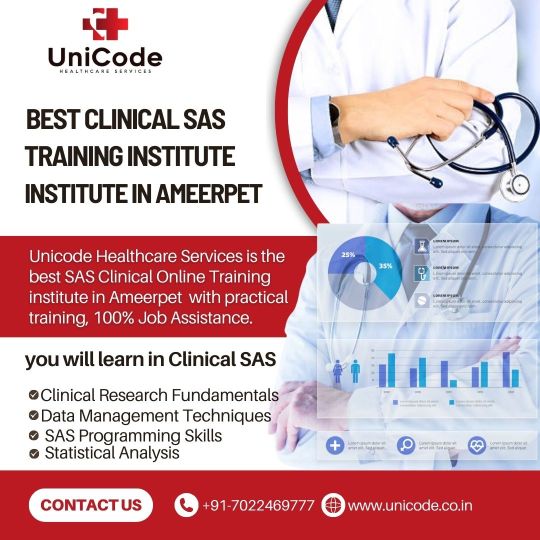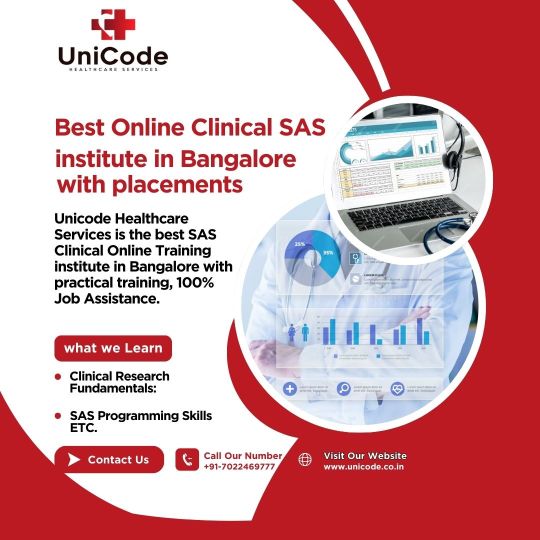#advanced automation systems
Explore tagged Tumblr posts
Text
#Automated Technology Group#industrial automation#innovation in automation#Industry 4.0#IoT integration#smart robotics#predictive maintenance#green automation#automation solutions#automation in manufacturing#automation trends 2024#sustainable automation#AI in automation#collaborative robots#automation success stories#future of work#advanced automation systems#automation market growth#automation technology#industrial efficiency
0 notes
Note
So.... why'd Peri get assigned Dev as his first godchild?




Jorgen’s usually not the one in charge of assigning godchildren. There’s an entire department that weighs and classifies potentail Godkids to the right Fairy. Although it’s on strike at the moment.
So Jorgen has to do it by hand, until the union negotiations are resolved. Turns out trying to use paperclips is very hard. Itty bitty paperclips. Big muscular biceps. Not a good combo.
Bitties Series: [Start] > [Previous] > [Next]
Peri's Assignment: [Previous] > [Next]
#fairly oddparents#fop#fop a new wish#fop timmy turner#fop timmy#timmy turner#fop jorgen vonstrangle#fop jorgen#jorgen vonstrangle#asks#itty bitties fop au#you'd think they'd have automated everything what with technology advancing to how it is today#but nah.#institutions are very slow to update or switch onto new tech or new efficient system. so everything's still on paper at the moment#(<- upset that most of the court systems in the u.s still rely on paper trails and refuses to digitize important documents)#anyways the department's in negotiations which means jorgen has to pick up the work to ensure no other fairy crosses the picket line#which means handling itty bitty paper clips for itty bitty papers#the amount of paper clips that have lost their lives because he accidentally snapped or bent them.... o7#ALSO.#I THINK IMMA MAKE A NEW POST FOR THIS BUT#I THINK IM GOING TO ADD A NEW LINE OF LINKS FOR THE PLOT-RELATED POSTS#THAT WAY YOU CAN JUMP BACK TO THE IMMEDIATE PREVIOUS PLOT LINK#WITHOUT NEEDING TO JUMP THROUGH A THOUSAND OTHER UPDATES THATS BEEN PUT BETWEEN THEM#when i go back to the chimmy moving plot and the timhazdev argument plot i'll also do the same thing
416 notes
·
View notes
Note
he’s on the right path for the wrong reason?
more like the wrong path for the right logic
#liek i guess i agree with what he says re: the path of ai but i do not think that the way ai is being utilized right now is the way it#should follow but that's not like A Truth but like obviously a very biased opinion#based in how i feel about art and creation. like of course jobs will continue being automated and his point about#basic income necessary as those jobs become automated is something i agree with#but there's more to just advancement of science behind ai because it is part of a market. what people dont understand#is that most of the time the point of ai is to improve comfort because comfort is the best thing to sell#in the neoliberalism system The first people that are fucked are the people without that financial support#that are getting taken away creative rights. so its not considering how corporations work#because they have a very positive view of how science develops#star anons
3 notes
·
View notes
Text
Streamlining Workforce Management with VMS, Contingent Workforce Solutions, and Direct Sourcing

In today’s evolving job market, businesses need agile and efficient workforce solutions to stay competitive. Managing a vms contingent workforce, optimizing vendor relationships, and adopting direct sourcing strategies are key to workforce success. A Vendor Management System (VMS) helps organizations streamline these processes, improving efficiency and cost-effectiveness.
What is a VMS for Contingent Workforce Management?
A VMS (Vendor Management System) is a centralized platform that helps businesses manage staffing vendors, track workforce costs, and automate compliance. It provides real-time insights into hiring trends, vendor performance, and contingent workforce utilization, allowing companies to make data-driven workforce decisions.
Benefits of a VMS System
✅ Automates vendor management and workforce tracking ✅ Enhances compliance and risk mitigation ✅ Optimizes staffing costs and contract negotiations ✅ Improves visibility into contingent workforce operations
Direct Sourcing: A Smarter Way to Hire
Direct sourcing allows companies to build a talent pool of pre-vetted candidates, reducing dependency on third-party staffing agencies. By leveraging a VMS system, businesses can: ✅ Access qualified talent faster ✅ Lower hiring costs by reducing agency fees ✅ Improve candidate experience and employer branding
Why Businesses Need These Workforce Solutions
By integrating a VMS system, contingent workforce strategies, and direct sourcing, businesses can: ✔ Enhance hiring efficiency and reduce time-to-fill ✔ Ensure compliance and vendor accountability ✔ Lower workforce costs and optimize vendor spend ✔ Improve workforce quality and agility
Future-Proof Your Workforce Strategy
Adopting a VMS system for contingent workforce management and direct sourcing helps businesses stay agile, cost-efficient, and competitive in today’s dynamic job market. Investing in these solutions ensures long-term growth, smarter hiring, and better workforce planning.
Vendor Onboarding Software: A Comprehensive Guide
7 Tips for Choosing a Contingent Performance Management Software
A Comprehensive Guide to Vendor Assessment process
#contingentworkforce#vendor management software#vendor management solutions#talentacquisition#vendormanagement#directsourcing#vendor management tools#vendor management process#vendor management system#vms system#sourcing in recruitment#contingent worker#onboarding automation#contingent workforce software#supply chain management software#talent sourcing#contingent workforce staffing#direct sourcing recruitment#contingent labor management#supplier performance management#advanced recruitment solutions#workforce management software#Vendor onboarding#contingent staffing solutions#vendor relationship management#vendor risk management system#Total talent management#contingent workforce solutions#direct sourcing platform#direct hire
0 notes
Text
#Smart Home Security#Wireless Security Cameras#Home Protection Devices#Secomart Security Solutions#Best Smart Surveillance#Affordable Home Security#Smart Alarms & Cameras#24/7 Home Monitoring#Secomart Safety Essentials#Advanced Security Systems#PIR Motion Detection Cameras#Smart Home Automation
1 note
·
View note
Text

Best-in-class robotic welding services for automotive components
#automotive industry#metal fabrication#automotive#automotive parts#electric vehicles#fabricationservices#robotic spot welding#robotic arc welding#automated welding systems#robotic welding services#automated welding solutions#industrial robotic welding#robotic welding technology#advanced welding robots#precision robotic welding#robotic welding fabrication#manufacturer#metalman auto
0 notes
Text
Parking Peace of Mind: How Wohr’s Automated Systems Keep Your Vehicle Safe
Finding a safe spot in a crowded city is a challenge. Scratches, dents, theft—traditional parking comes with risks. Your vehicle is constantly exposed to external threats, from careless drivers to intentional vandalism. But what if your car could park itself in a secure, damage-free, theft-proof space, eliminating these risks? That’s where Wohr Parking Systems steps in. With cutting-edge automated parking safety features, Wohr’s solutions ensure your vehicle stays as safe as when you left it.
As urban spaces become more congested, the need for smart parking technology is more critical than ever. Wohrparking offers a range of advanced parking solutions that go beyond just space-saving; they actively prevent vehicle damage and theft. With robust parking technology for theft prevention, Wohr’s automated solutions provide a level of protection that traditional parking methods simply cannot match.
How Wohr Automated Parking Systems Ensure Vehicle Safety and Security
Zero Human Error = Zero Damage
Most parking mishaps happen due to human misjudgment. Wohr’s automated parking systems eliminate driver involvement, ensuring perfect vehicle placement without dings or scrapes. Systems like the Parklift series use precise mechanical movements, protecting your car from accidental bumps. Automated vehicle damage prevention is a key feature of these solutions, making them a top choice for secure and damage-free parking.
Theft-Proof Parking with Secure Enclosures
Car theft and vandalism? Not in a Wohr car parking system. Vehicles are stored in enclosed, access-controlled spaces, eliminating unauthorized access. The Parksafe 580 and other tower/pit storage models make theft practically impossible. Reducing vehicle theft with automation is a priority in Wohr’s design, ensuring secure automated parking solutions.
Advanced Sensors: Smarter, Safer Parking
Wohr integrates ultrasonic and infrared sensors to detect obstructions and prevent accidents. These sensors also monitor weight distribution, ensuring the system operates smoothly and safely. If anything’s amiss, the system halts immediately, preventing damage. Innovations in parking security like this make Wohr a leader in parking system innovations.
Emergency Braking & Safety Mechanisms
Unforeseen failures? Wohr has that covered! Built-in emergency braking systems stop platform movement during malfunctions, preventing sudden drops or collisions. Wohr system safety mechanisms ensure that even in unexpected situations, your vehicle remains protected.
Hassle-Free, Secure Car Retrieval
Forget reversing out of a tight spot! Wohrparking solutions deliver your car directly to you, ensuring a smooth, damage-free parking system experience. No need to navigate narrow ramps or tight corners—just collect your vehicle and go. Safety in smart parking solutions ensures a stress-free experience every time.
Automated Maintenance: Consistent Safety Checks
Wohr’s parking technology self-monitors for maintenance needs, running diagnostics to prevent mechanical failures before they happen. This proactive approach ensures a flawless, long-lasting, and safe parking experience. Advanced parking solutions like this reduce downtime and enhance automated car parking security measures.
Wohr Parking Safety Features: Technology that Protects
Wohr’s smart parking technology is designed to enhance secure vehicle parking technologies. Some key highlights include:
Automated Parking Systems Features - Automated lifts and turntables accurately position vehicles without any driver intervention, reducing the risk of misalignment or scratches
Parking technology for theft prevention - Biometric access controls, PIN-based authentication, and RFID-enabled systems make it virtually impossible for intruders to gain entry.
Future of secure parking systems - Wohr is pioneering smart parking technology with real-time monitoring systems, predictive maintenance alerts, and AI-driven surveillance that enhance security
Vehicle protection innovations in automated parking systems - With real-time diagnostics, predictive maintenance, and fault detection technology, vehicles are safeguarded from potential mechanical failures.
Wohr automated parking solutions for theft prevention and vehicle security. With features such as multi-layered access authentication, enclosed storage systems, and automated retrieval protocols, Wohr significantly reduces the risks of vehicle damage and theft.
Why Wohr? The Future of Secure Parking is Here
Wohr isn’t just building parking systems; they’re engineering peace of mind. Their commitment to safety, security, and innovation ensures that every car parked in their systems is protected from theft, damage, and human error.
With AI-driven monitoring, IoT-enabled tracking, and smart automation, the future of parking is here—and it’s safer than ever. Benefits of using Wohr automated parking for secure vehicle storage are evident, making it the go-to choice for urban parking solutions.
As cities continue to grow and parking challenges become more complex, Wohr Parking Systems is leading the charge in redefining automated parking safety. Their solutions offer parking technology for theft prevention, automated vehicle damage prevention, and seamless convenience for modern drivers. By combining innovative engineering with state-of-the-art security measures, Wohr ensures that every vehicle is protected from both theft and accidental damage.
If you’re looking for a future-proof, secure, and hassle-free parking experience, it’s time to park smarter, park safer, and park with Wohr!
#automated parking safety#advanced parking solutions#secure automated parking#parking system innovations#smart parking solutions#Advanced car parking solutions#automated car parking security measures#smart parking technology
0 notes
Text
India's Zen Technologies Secures Patent for Advanced Automated Hard Kill Firearm Mounting System
Zen Technologies’ Advanced Automated Hard Kill Firearm Mounting System: New Delhi, India – Zen Technologies Limited has announced the acquisition of a significant patent for its innovative Automated Hard Kill Firearm Mounting System. This cutting-edge technology is designed to revolutionize defense capabilities by enabling autonomous target detection and engagement, drastically reducing response…
0 notes
Text
#Fully Automatic Cashew Processing Plant#Full Automatic Cashew Processing Plant#Fully automated cashew processing system#Advanced cashew processing technology#Fully automatic cashew machine#high-capacity cashew processing machine
0 notes
Text

Advanced robotics is transforming engineering by automating complex tasks with AI and machine learning. Industries like healthcare, manufacturing, and logistics benefit from intelligent machines that enhance efficiency and precision. Unlike traditional automation, AI-powered robots adapt, learn, and improve over time. At M.Kumarasamy College of Engineering (MKCE), students engage with cutting-edge robotics through hands-on projects. The institution’s labs foster innovation in autonomous systems and adaptive algorithms. Emerging trends like swarm robotics and soft robotics are revolutionizing automation. MKCE integrates interdisciplinary learning, merging robotics with AI and mechanical engineering. Industry partnerships ensure students gain real-world exposure to advanced technologies. The college also emphasizes sustainable robotics solutions for a greener future. As robotics continues to evolve, MKCE remains at the forefront of this transformative field.
To know more : https://mkce.ac.in/blog/advanced-robotics-as-the-next-frontier-in-engineering-automation/
#best engineering college in karur#top 10 colleges in tn#engineering college in karur#private college#engineering college#best engineering college#mkce college#mkce#libary#mkce.ac.in#Industrial Automation#Robotics in Manufacturing#Advanced Robotics#Engineering Automation#AI in Robotics#Robotics and Machine Learning#Autonomous Systems#AI-Powered Automation
0 notes
Text
#Tags:AI Advancements#AI and Society#AI Governance#AI in business#AI in finance#AI in Healthcare#AI in Retail#AI Regulation#AI Surveillance#AI trends#AI-powered robots#artificial intelligence 2025#Automation#Autonomous Systems#Deep Learning#Ethical AI#facts#Humanoid Robots#life#Machine Learning#Neural Networks#Podcast#Quantum Computing#Robotics#serious#straight forward#truth#upfront#website
0 notes
Text
Industrial Automation Market to be Worth $368.05 Billion by 2031
Meticulous Research®—a leading global market research company, published a research report titled, ‘Industrial Automation Market - Global Opportunity Analysis and Industry Forecasts (2024-2031)’. According to this latest publication from Meticulous Research®, the global industrial automation market is projected to reach $368.05 billion by 2031, at a CAGR of 9.1% from 2024 to 2031.
The market growth is driven by government initiatives promoting industrial development, increasing investments in industrial automation, the rising demand for energy-efficient systems, and the increasing need for supply chain optimization. However, high CAPEX requirements and concerns about workforce displacement restrain the market's growth. Moreover, the increasing demand for sustainable solutions is expected to create market growth opportunities. However, cybersecurity risks associated with automated systems pose challenges to the market's growth.
The global industrial automation market is segmented by offering, mode of operation, and end-use industry. The study also evaluates end-user industry competitors and analyzes the market at the region/country level.
Download Sample Report Here @ https://www.meticulousresearch.com/download-sample-report/cp_id=5172
By offering, the global industrial automation market is segmented into solutions and services. In 2024, the solutions segment is expected to account for the larger share of the global industrial automation market. The solutions segment is also projected to register the highest CAGR during the forecast period. The large market share of this segment is attributed to the high adoption of PLM, ERP, and MES solutions for streamlining the production & enterprise processes across the manufacturing & industrial sectors, increasing demand for data analytics and predictive maintenance capabilities to optimize operations, reduce downtime, and improve overall equipment effectiveness (OEE), growing need to reduce operational costs and optimize resource utilization, and the emergence of Industry 4.0 & enabling technologies.
By mode of automation, the global industrial automation market is segmented into semi-automatic systems and fully automatic systems. In 2024, the semi-automatic systems segment is expected to account for the larger share of the global industrial automation market. The large market share of this segment is attributed to the lower cost of implementation compared to fully automatic systems, the increasing need for a higher degree of flexibility between manual and automated processes, and the growing need for monitoring industrial systems closely and intervening promptly in cases of anomalies that leads to costly downtime or quality issues.
However, the fully automatic systems segment is projected to register the highest CAGR during the forecast period due to the growing need to increase industrial production capabilities, the growing need to reduce the risk of workplace accidents and injuries by replacing humans in hazardous or physically demanding tasks, and increasing need to optimize supply chains, improve logistics, and achieve greater efficiency in sourcing, production, and distribution.
By end-use industry, the global industrial automation market is segmented into oil & gas, automotive, food & beverage, semiconductors & electronics, chemicals & materials, consumer goods, mining & metals, power, pharmaceuticals & biotech, machines & tools, paper & pulp, aerospace & defense, and other end-use industries. In 2024, the oil & gas segment is expected to account for the largest share of the global industrial automation market. The large market share of this segment is attributed to the growing need to streamline operations across the entire value chain of oil and gas production, increasing demand for automated monitoring systems to minimize environmental impact and enhance safety, growing need to prevent unplanned downtime, extend asset lifespan, and reduce maintenance costs, increasing demand for automated drilling systems to enable precise monitoring and control of parameters such as drill bit pressure, speed, and direction.
However, the automotive segment is projected to register the highest CAGR during the forecast period due to the rapid technological advancements, including autonomous driving and connected vehicles, increasing implementation of machine vision systems and sensor technologies by automotive manufacturers, growing demand to ensure consistent quality and precision in manufacturing processes, growing need to streamline processes and increasing productivity, and increasing adoption of Automated guided vehicles (AGVs) and collaborative robots (COBOTS) to enhance ergonomic conditions in manufacturing facilities.
By geography, the global industrial automation market is segmented into North America, Europe, Asia-Pacific, Latin America, and the Middle East & Africa. In 2024, Asia-Pacific is expected to account for the largest share of the global industrial automation market, followed by Europe, North America, Latin America, and the Middle East & Africa. The region is also projected to register the highest CAGR during the forecast period. The large market share of Asia-Pacific is mainly attributed to the increasing demand for advanced industrial automation solutions to enhance productivity, efficiency, and competitiveness in manufacturing sectors such as automotive, electronics, machinery, and consumer goods, growing need to automate production processes to reduce reliance on manual labor and remain cost-competitive, expansion of automotive industry, increasing technological advancements and adoption, with significant investments in robotics, artificial intelligence, IoT, and digitalization to achieve greater efficiency, precision, flexibility, and connectivity in industrial processes.
Complete Here : https://www.meticulousresearch.com/product/industrial-automation-market-5172
Key questions answered in the report-
Which are the high-growth market segments based on offering, mode of operation, end-use industry, and geography?
What was the historical market for the industrial automation market?
What are the market forecasts and estimates for the period 2024–2031?
What are the major drivers, restraints, opportunities, and challenges in the industrial automation market?
Who are the major players, and what shares do they hold in the industrial automation market?
How is the competitive landscape in the industrial automation market?
What are the recent developments in the industrial automation market?
What are the different strategies adopted by the major players in the industrial automation market?
What are the key geographic trends, and which are the high-growth countries?
Who are the local emerging players in the global industrial automation market, and how do they compete with the other players?
Contact Us: Meticulous Research® Email- [email protected] Contact Sales- +1-646-781-8004 Connect with us on LinkedIn- https://www.linkedin.com/company/meticulous-research
#Industrial Automation Market#Manufacturing Process Automation#Factory Automation Solutions#Automated Production Systems#Production Line Automation#Advanced Manufacturing Automation
0 notes
Text
Manufacturer & Supplier of Servo Motor Training Kit in Pune India

Hytech Didactic offers top-quality Servo Motor Training Kits in Pune. Discover innovative servo training kits designed for hands-on skill development in automation and control systems.
#Servo Motor Training Kit Pune#Servo Training Kit Pune#Servo Kit Pune#Servo Motor Training Solutions Pune#Servo Training Systems Pune#Automation Training Kits Pune#Advanced Servo Motor Training Pune
0 notes
Text




#Best Clinical SAS Training Institute in Hyderabad#Unicode Healthcare Services stands out as the top Clinical SAS training institute in Ameerpet#Hyderabad. Our comprehensive program is tailored to provide a deep understanding of Clinical SAS and its various features. The curriculum i#analytics#reporting#and graphical presentations#catering to both beginners and advanced learners.#Why Choose Unicode Healthcare Services for Clinical SAS Training?#Our team of expert instructors#with over 7 years of experience in the Pharmaceutical and Healthcare industries#ensures that students gain practical knowledge along with theoretical concepts. Using real-world examples and hands-on projects#we prepare our learners to effectively use Clinical SAS in various professional scenarios.#About Clinical SAS Training#Clinical SAS is a powerful statistical analysis system widely used in the Pharmaceutical and Healthcare industries to analyze and manage cl#and reporting.#The program includes both classroom lectures and live project work#ensuring students gain practical exposure. By completing the training#participants will be proficient in data handling#creating reports#and graphical presentations.#Course Curriculum Highlights#Our Clinical SAS course begins with the fundamentals of SAS programming#including:#Data types#variables#and expressions#Data manipulation using SAS procedures#Techniques for creating graphs and reports#Automation using SAS macros#The course also delves into advanced topics like CDISC standards
0 notes
Text
6 ways to improve front desk operations in a hotel

Implement a User-Friendly Property Management System (PMS)
Investing in a robust, user-friendly PMS can streamline many front desk functions, allowing for quicker guest check-ins and check-outs, and simplifying task management for staff. The right PMS can also automate functions like billing, housekeeping updates, and guest profile management, ensuring that information is centralized and accessible. With integrated technology, front desk staff can access real-time data and focus more on engaging with guests rather than juggling paperwork.
Example: Hotels can use cloud-based PMS solutions that integrate with mobile devices, enabling staff to manage bookings, room assignments, and other guest requests on-the-go. This type of flexibility can enhance the guest experience and make the front desk operation more agile.
Enhance Staff Training and Development
A knowledgeable and friendly front desk team is essential for smooth operations and creating positive guest experiences. Training programs should include customer service techniques, conflict resolution, cultural sensitivity, and technology skills to ensure that staff can handle a wide range of scenarios. By investing in ongoing training and development, hotels can empower front desk agents to respond confidently and professionally to any guest need.
Example: Implementing customer service role-playing sessions or workshops on handling difficult situations helps front desk staff feel more prepared and confident in high-pressure situations. This leads to quicker resolution of guest issues and enhances the overall service quality.
Leverage Mobile Check-In and Check-Out Options
Offering mobile check-in and check-out options can greatly improve convenience for guests, especially those who value minimal contact or are on tight schedules. With these digital options, guests can skip the line, access their room with digital keys, and receive important information directly on their mobile devices. This not only speeds up the process but also reduces wait times at the front desk, allowing staff to focus on more personalized interactions with guests.
Example: Hotels that allow guests to check in through an app or kiosk help reduce lobby congestion during peak hours, providing a smoother arrival experience. Mobile check-out also enables guests to settle their bills quickly and leave feedback immediately, fostering a positive and seamless end to their stay.
Create a Well-Organized and Efficient Workspace
Organization is key to smooth front desk operations. A clutter-free, well-designed workspace helps front desk staff access essential tools and information quickly, allowing them to serve guests efficiently. Organized storage, a clear filing system, and ergonomic workstation setups can reduce unnecessary steps and help staff focus on guest engagement rather than searching for items.
Example: Organizing desk drawers with labeled sections for different forms, supplies, and guest essentials can speed up routine tasks. Hotels could also use digital filing systems to eliminate paperwork, making it easier to retrieve guest data and reducing physical clutter.
Use Data Analytics for Forecasting and Staff Allocation
Data analytics can play a significant role in optimizing front desk operations. By analyzing guest flow patterns, seasonal demand, and peak hours, hotels can better predict staffing needs and ensure that they have adequate coverage. This approach prevents both overstaffing and understaffing, ensuring that guests receive timely service without additional operational costs.
Example: With data insights, front desk managers can allocate more staff during weekends, holidays, or major events when guest traffic is higher. During low-occupancy periods, they can redistribute front desk staff to other areas of the hotel, optimizing labor costs and efficiency.
Encourage Personalized Service and Attention to Detail
Personalized service can leave a lasting impression on guests and set a hotel apart from its competitors. Simple gestures, like addressing guests by name, remembering their preferences, or accommodating special requests, can enhance guest satisfaction. Front desk teams can leverage guest data from CRM systems to tailor their service approach, creating an experience that feels unique and memorable.
Example: If a guest is a returning visitor who previously requested extra pillows or specific room amenities, front desk staff can proactively arrange these before their arrival. Such attention to detail shows the guest that their preferences are valued and remembered.
Conclusion An efficient front desk operation is essential for a hotel’s success and guest satisfaction. By adopting advanced technology, continuously training staff, organizing the workspace, using data analytics for decision-making, and personalizing guest interactions, hotels can significantly enhance their front desk operations. These improvements lead to smoother guest experiences, higher retention rates, and a stronger brand reputation.
Additional Tips for Optimizing Front Desk Operations
Offer Multi-language Support: Having multilingual staff or digital translation tools can enhance communication with international guests.
Automate Routine Tasks: Automated notifications for housekeeping, maintenance, or guest requests can streamline coordination among departments.
Implement Guest Feedback Systems: Encourage guests to provide feedback during check-out, which can help the hotel address issues immediately and improve service.
#hotel front desk operations#property management system for hotels#user-friendly PMS software#streamline hotel check-ins#mobile check-in and check-out for hotels#efficient front desk management#guest experience improvement#cloud-based hotel PMS#staff training for hotels#hotel technology integration#data analytics for hotels#personalized guest service#hotel front desk workspace organization#automated hotel billing systems#hotel guest satisfaction strategies#hotels near me with digital check-in#advanced hotel PMS in Chennaia
0 notes
Text
The Future of Automated Home Cleaning with SwitchBot Automatic Vacuums!
Hey everyone! I'm excited to share my thoughts on the amazing advancements in the Smart Home Industry, specifically with SwitchBot's innovative automatic vacuum cleaners.
These cutting-edge devices have revolutionized the way we approach household chores, making our lives more convenient and efficient than ever before. With SwitchBot's automatic vacuums, you can sit back and relax while these smart machines do all the hard work for you.
What I love most about these vacuums is their seamless integration with smart home technology. You can control them remotely using your smartphone or voice commands, scheduling cleaning sessions or even mapping out specific areas that need extra attention. It's like having your own personal cleaning assistant!
But that's not all – SwitchBot's automatic vacuums are also incredibly powerful and thorough. They use advanced sensors and navigation systems to map out your home's layout, ensuring that every nook and cranny is spotless. No more missed spots or hard-to-reach areas!
And let's not forget about the time and energy you'll save by not having to manually vacuum your home. With SwitchBot's automatic vacuums, you can reclaim those precious hours and spend them doing the things you truly enjoy.
I can't wait to see what other innovative products SwitchBot has in store for us. The Smart Home Industry is truly revolutionizing the way we live, and I'm thrilled to be a part of this exciting journey!
#automated cleaning#SwitchBot#smart home#vacuum cleaners#home technology#remote control#voice commands#cleaning assistant#advanced sensors#navigation systems#time-saving#home efficiency
0 notes